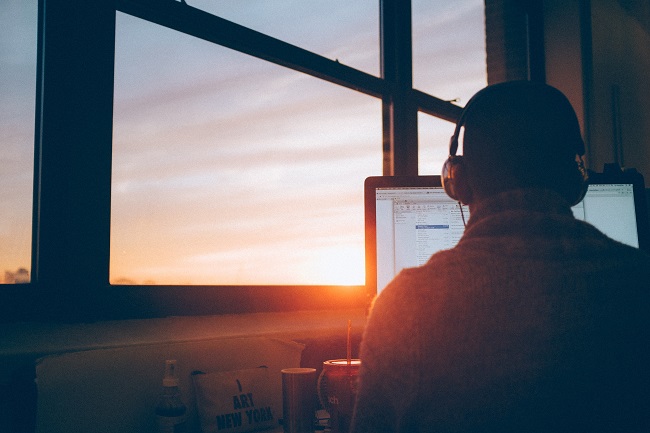Navigating new ways of working in the recovery
Diane Edwards shared some insights from Ports of Auckland’s journey with Robert Perry to shed some light on what’s likely to happen next and how business can prepare.

Photo by Simon Abrams on Unsplash
Last week I had the pleasure of chatting with Diane Edwards (Future Foresight Strategist) for SBC’s latest webinar with our members. Our conversation focused on how Covid-19 was impacting on New Zealand workplaces and our ways of working. In looking ahead – which is second nature to Ports of Auckland employees – to and moving beyond Alert Level 3, Diane shared insights from Ports’ journey to shed some light on what’s likely to happen next and how business can prepare.
So my first insight is that the term “Future of Work’ (FoW) has almost become redundant. It sounds almost clichéd, but the ‘FoW’ is very much here and now. We are in uncharted waters and we cannot predict how a post-Covid-19 future will play out. However, it is clear that the disruptions that will shape all aspects of work go far beyond the health crisis Covid-19 has presented.
We will be unpicking the enormity of that statement as SBC refreshes its business strategy in the coming weeks.
My second take out, was how critical it has been for Ports to invest in building futures thinking, resilience and adaptive leadership as core competencies over the last two years. Not only has it helped shaped its strategic plan – which is simply transformational – it’s also helped the business be more flexible to respond much more quickly when facing ‘black swan’ events such as Covid-19.
One of the ways Ports has achieved this is by undertaking future foresight training with more than 80 staff, defining what the business needs to look like in 30 years’ time and what steps they need to take to get there. We recently published a case study about how they have helped staff engage in this process.
Rob Fyfe’s advice to “prepare for the worst and hope for the best” was echoed by Diane in highlighting the importance of not underestimating the change, challenges and uncertainties that lie ahead, and to think broadly about the different scenarios that can happen. For instance, with the move to Level 3, organisations are slowly bringing people back to traditional workplaces. But what does that mean and what could a ‘preferred’ workplace look given the Covid-19 pandemic is accelerating change in both business models, tech adoption and skills transitions? We won’t be reverting to ‘business as usual’ because it doesn’t exist.
Tools such as foresighting and scenario planning can boost a business’ understanding of possible futures rather than “what is likely”, and to engage staff in shaping what a preferred post-Covid world could look like.
Finally, the most important take out for me, is the importance of supporting and staying connected with one another. As Diane pointed out it is the unknown that spreads uncertainty and with that comes stress. A weekly online “all staff’ discussion is a simple and effective way that the Ports’ executive team keeps everyone up to date on what’s happening, and also keeps them involved by seeking input on what the next steps should be.
If you are interested in learning more about foresighting, check out thinkstep-anz’s introductory webinar.
Please email me if you would like to share how your organisation is innovating and adapting to new ways of working. Also let me know if there are specific topics you would like us to cover in future webinars.
Robert Perry, Manager, Sustainable Leadership.
Contact: Robert Perry, Manager, Sustainable Leadership, Sustainable Business Council
Phone:
Email:
